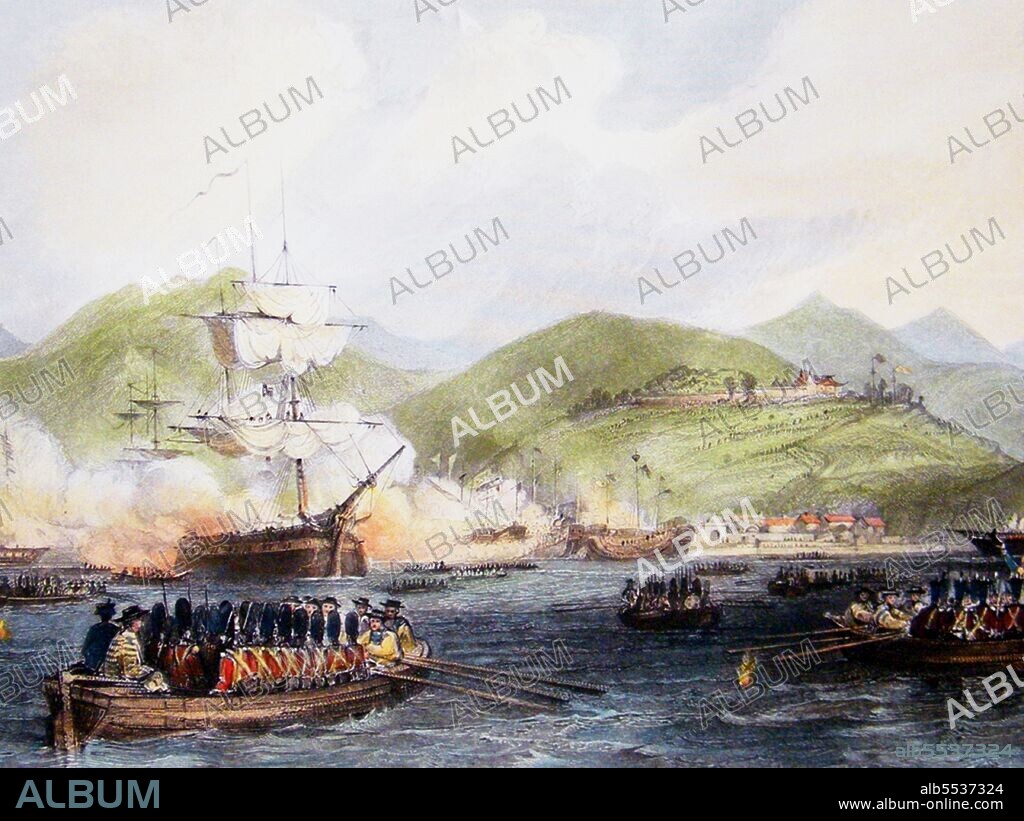alb5537324
China: The Capture of Ting-hai, Chusan (Zhousan),1840, during the First Opium War (1839-1842). Thomas Allom,1843.

|
Añadir a otro lightbox |
|
Añadir a otro lightbox |



¿Ya tienes cuenta? Iniciar sesión
¿No tienes cuenta? Regístrate
Compra esta imagen

Título:
China: The Capture of Ting-hai, Chusan (Zhousan),1840, during the First Opium War (1839-1842). Thomas Allom,1843.
Descripción:
Traducción automática: La Primera Guerra Anglo-China (1839-1842), conocida popularmente como la Primera Guerra del Opio o simplemente la Guerra del Opio, se libró entre el Reino Unido y la dinastía Qing de China por sus puntos de vista contradictorios sobre las relaciones diplomáticas, el comercio y la administración. de Justicia. Los funcionarios chinos deseaban detener lo que se percibía como una salida de plata y controlar la difusión del opio, y confiscaron suministros de opio a los comerciantes británicos. El gobierno británico, aunque no negó oficialmente el derecho de China a controlar las importaciones, se opuso a esta incautación y utilizó su recién desarrollado poder militar para imponer reparaciones violentas. En 1842, el Tratado de Nanking (el primero de lo que los chinos llamaron más tarde tratados desiguales) otorgó una indemnización a Gran Bretaña, la apertura de cinco puertos tratados y la cesión de la isla de Hong Kong, poniendo así fin al monopolio comercial del Sistema de Cantones. . El fracaso del tratado para satisfacer los objetivos británicos de mejorar las relaciones comerciales y diplomáticas condujo a la Segunda Guerra del Opio (1856-1860). La guerra se considera ahora en China como el comienzo de la historia china moderna.
The First Anglo-Chinese War (1839–42), known popularly as the First Opium War or simply the Opium War, was fought between the United Kingdom and the Qing Dynasty of China over their conflicting viewpoints on diplomatic relations, trade, and the administration of justice. Chinese officials wished to stop what was perceived as an outflow of silver and to control the spread of opium, and confiscated supplies of opium from British traders. The British government, although not officially denying China's right to control imports, objected to this seizure and used its newly developed military power to enforce violent redress. In 1842, the Treaty of Nanking—the first of what the Chinese later called the unequal treaties—granted an indemnity to Britain, the opening of five treaty ports, and the cession of Hong Kong Island, thereby ending the trade monopoly of the Canton System. The failure of the treaty to satisfy British goals of improved trade and diplomatic relations led to the Second Opium War (1856–60). The war is now considered in China as the beginning of modern Chinese history.
Crédito:
Album / Pictures from History/Universal Images Group
Autorizaciones:
Modelo: No - Propiedad: No
¿Preguntas relacionadas con los derechos?
¿Preguntas relacionadas con los derechos?
Tamaño imagen:
4800 x 3602 px | 49.5 MB
Tamaño impresión:
40.6 x 30.5 cm | 16.0 x 12.0 in (300 dpi)
 Pinterest
Pinterest Twitter
Twitter Facebook
Facebook Copiar enlace
Copiar enlace Email
Email
